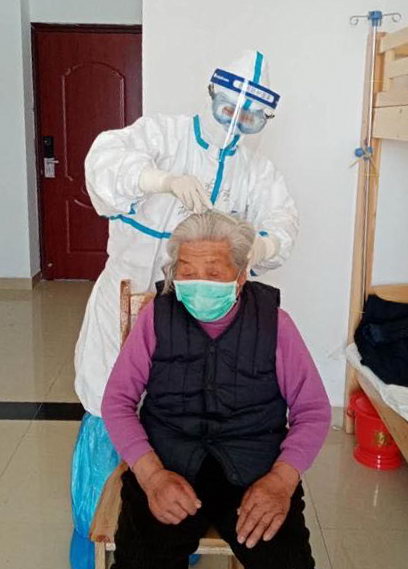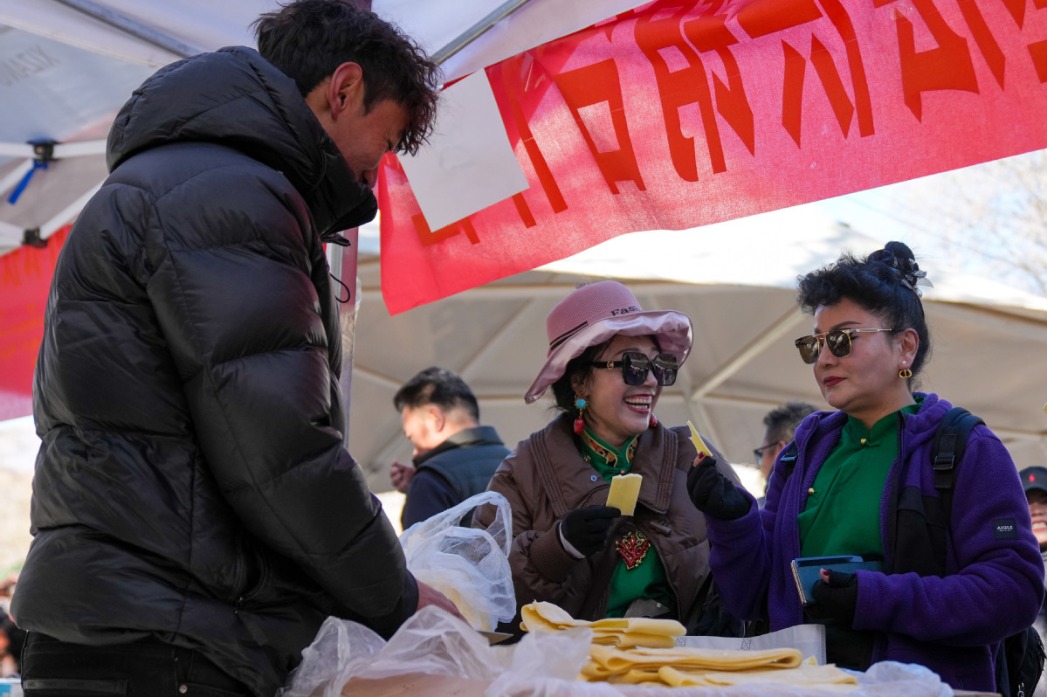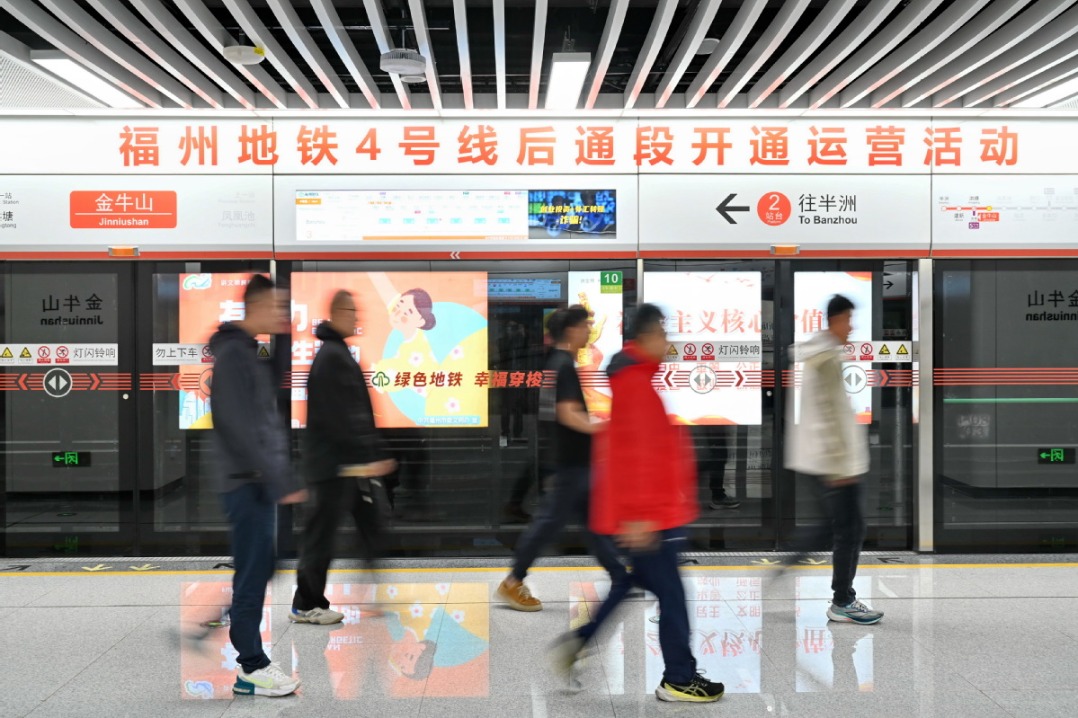Elderly getting timely treatment amid challenges


An 85-year-old woman surnamed Yu has recovered from COVID-19 and was discharged from a hospital on Sunday in Wuhan, Hubei province, after 52 days of treatment.
Yu was the most recent senior coronavirus patient among a large number of elderly patients who have recovered and been discharged from hospital in Wuhan, thanks to careful treatment by medical staff.
A 103-year-old female patient surnamed Li, the eldest confirmed case so far, was discharged on March 16.She was sent to the Wuhan Third Hospital on March 3, and despite having mild symptoms she was treated in the intensive care unit given her age and health condition.
Fu Shouzhi, director of the hospital's intensive medicine department, said many elderly patients suffered from preexisting problems such as organ dysfunction. Li, for example, had impairments in her heart and liver, as well as with her cognitive and logical thinking; she could not express her needs accurately.
"In this case, together with the novel coronavirus infection, it could be very dangerous for her. Any sudden sign could be fatal," she said.
Fu said successful treatment of elderly patients depends on their basic conditions and the degree of infection, as well as whether the rescue was timely and how much of the treatment plan was implemented.
Eating habits, nutrition and sleep quality should all be taken into account, along with risk factors such as blood viscosity, atherosclerosis and cardio-cerebrovascular embolism, she said.
The coronavirus might also cause a decline in gastrointestinal functions and malnutrition that damage the immune system.
"Therefore, the treatment must be personalized and organ function must be considered when formulating an antiviral treatment plan," Fu said, adding observation is also very important while carrying out treatment.
Fu said the average age of critical patients at Wuhan Third Hospital was 67, with many having preexisting diseases such as diabetes.
"Senior patients' conditions develop very fast," she said. "Our rate of successful treatment was about 80 percent. Many have recovered well. Treating elderly people is a challenge for us. We have gained some experience and achievements, which is an encouragement to us," she said.
At a rehabilitation center at Wuhan Xinyue Gynecological Hospital, all patients were seniors. Since March 3, the center has received nearly 100 patients ranging from 67 to 103 years old, with an average age of 80.
The center now houses more than 70 patients. Some of them are paralyzed, limited in intellectual functioning and unable to take care of themselves.
"It is very difficult to take care of them," said Tian Hua, a 44-year-old nurse at the center. She said the elderly patients usually come with preexisting conditions that require more medical treatment.
In addition to checking body temperatures, monitoring changes in condition, emergency rescue and hospital referrals, medical staff also need to feed them food and medicine, bathe them and help them go to the toilet.
The center has five doctors, nine nurses and 12 medical caretakers with complete treatment facilities. They work in shifts 24 hours a day, patrol the rooms every half an hour to make sure patients are in stable condition and help change diapers for paralyzed elderly patients every two hours.
At Guanggu campus of Hubei Maternity and Child Health Care Hospital, 947 patients that are over 60 years old have been admitted with more than 220 recovered.
The doctors tailored the treatment plan for each patient after a comprehensive evaluation of their psychological state, cognitive level and conditions after taking the medicine.
In cases where there are problems communicating, nurses use cards with pictures to ensure their needs can be responded to in time.
On March 14, a surgical team at Wuhan Union Hospital affiliated to Huazhong University of Science and Technology successfully completed a tracheotomy for a critically ill patient in his 60s.
The patient, surnamed Li, was in serious condition and suffering a heart attack when transferred to the hospital on Feb 15.
"Tracheotomy is one of the highest risk of all operations for novel coronavirus pneumonia. It is not exaggerating to say that we were dancing on the tip of the knife," said Zhang Xiaomeng, director of the hospital's otolaryngology department.
- Renji Hospital celebrates two decades of international medical excellence
- Thousands of tundra swans grace Hunan's Donggu Lake for the winter
- Xinjiang heats up, halts traffic amid strong cold snap
- Photo of Qinglong Mountain egg fossil featured in top chemistry publication for groundbreaking dating research
- Three killed in North China building fire
- China sees jump in number of students returning from overseas in 2024





































